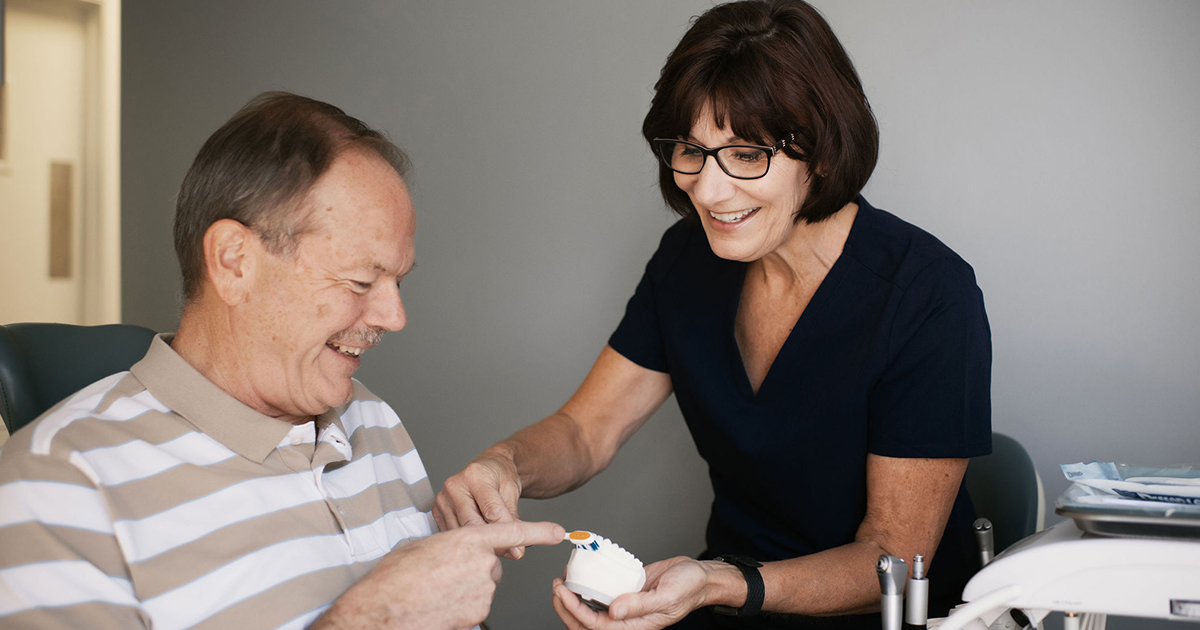Even patients who are extremely diligent with their oral healthcare can experience tooth decay and other dental issues.

Restorative Dentistry
Even patients who are extremely diligent with their oral healthcare can experience tooth decay and other dental issues.

What is Restorative Dental Care?
Tooth decay degrades a tooth’s structure and integrity by eating away the healthy enamel and dentin. Severe decay can reach all the way down to the tooth root, causing serious pain and infection. Restorative dental care works to eliminate the decayed, infected tissues and build your teeth back to their original structure and strength. The goal of restorative dentistry is to save your natural teeth whenever possible.
Types of Restorative Treatments


Benefits of Restorative Dentistry
It is always in your best interest to keep your teeth, not just because you want to keep your smile as natural as possible, but also because losing a tooth or several teeth can have further repercussions on your oral health. Additionally, it is more time and cost effective to restore a tooth than to replace one. Restorative dentistry helps keep your smile strong and healthy.
Dental Crowns
When a tooth is badly damaged, covering it with a crown will reinforce its structure, restoring strength and preventing the tooth from needing to be extracted. With a crown in place, a tooth that was compromised by severe decay, a large crack, breakage, or extraordinary wear will be restored to its full strength.
A dental crown is made of highly durable ceramic strong enough to withstand the wear and tear our teeth are subjected to every day. Each crown is custom made to feel perfectly natural and blend in seamlessly with the surrounding teeth. Once in place, a crown is virtually impossible to detect, even up close. Crowns are designed to last 10 years or longer with proper care and regular dental examinations.
If you have a tooth with a large filling, severe decay, breakage, or cracks, a dental crown may be the best way to save your smile.
